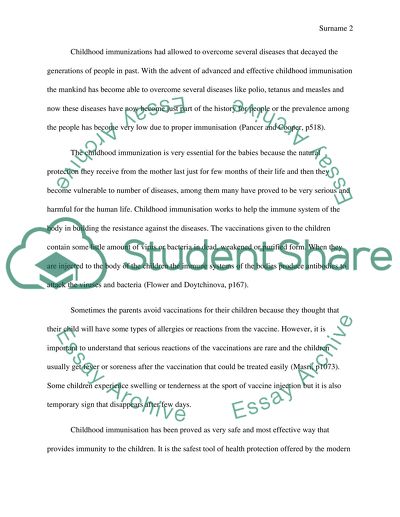Cite this document
(“Childhood immunization Research Paper Example | Topics and Well Written Essays - 1250 words”, n.d.)
Retrieved from https://studentshare.org/literature/1427679-childhood-immunization
Retrieved from https://studentshare.org/literature/1427679-childhood-immunization
(Childhood Immunization Research Paper Example | Topics and Well Written Essays - 1250 Words)
https://studentshare.org/literature/1427679-childhood-immunization.
https://studentshare.org/literature/1427679-childhood-immunization.
“Childhood Immunization Research Paper Example | Topics and Well Written Essays - 1250 Words”, n.d. https://studentshare.org/literature/1427679-childhood-immunization.


